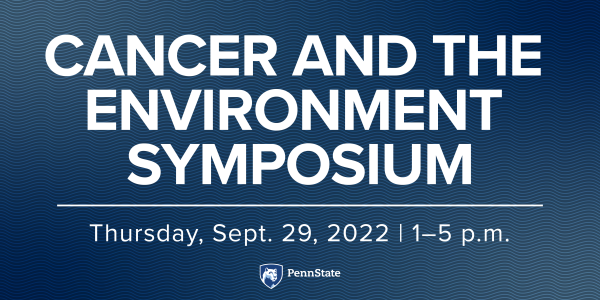
Several components of the environment, including the built environment and contaminants found in the air we breathe, the water we drink, the food we eat and the environment in which we live, can have positive or negative health consequences. Cancer is the second leading cause of death in the US, accounting for over 600,000 deaths annually. Many environmental exposures are associated with cancer, including, but not limited to, pesticides, medical drugs, fine particles in the air, polycyclic aromatic hydrocarbons, and heavy metals, and many, such as microplastics, are emerging as potentially associated with cancer risk. Unfortunately, cancer is also a disease in which numerous disparities in outcome exist. These disproportionally affect individuals in minority racial groups and those with lower socioeconomic status – similar groups that are, on average, disproportionally disadvantaged by environmental exposures.
In this workshop, our goal is to build on an initial conversation held in the spring of 2021 to combine two strengths of Penn State – our environmental research and our cancer research – by connecting and fostering research teams with the goal to increase our funding and research output in this area. Potential areas of interest include the existing and shifting exposures from our environment (air, water, food, and climate impacts); intersections with demographic/social science dynamics; and pathways for integrating research (data sets, key questions). Our goal is further internal conversations across Penn State, including the broader Commonwealth network, and to expand potential research collaborations in this space. All within the Penn State network are invited to participate; if you need assistance to participate, please let us know.
Ultimately, we hope for Penn State to be recognized for our impactful research in cancer and the environment – a growing priority for the National Cancer Institute and other funding agencies.
Agenda
- When: September 29, 2022, 1-5 PM
- In-person or virtual presentations (1-3 PM)
- In-person posters and networking (3-5 PM)
- Where: Penn State University Park Campus
- 1-3 PM: Energy & Environmental Laboratory Auditorium
- 3-5 PM: Land & Water Research Building
